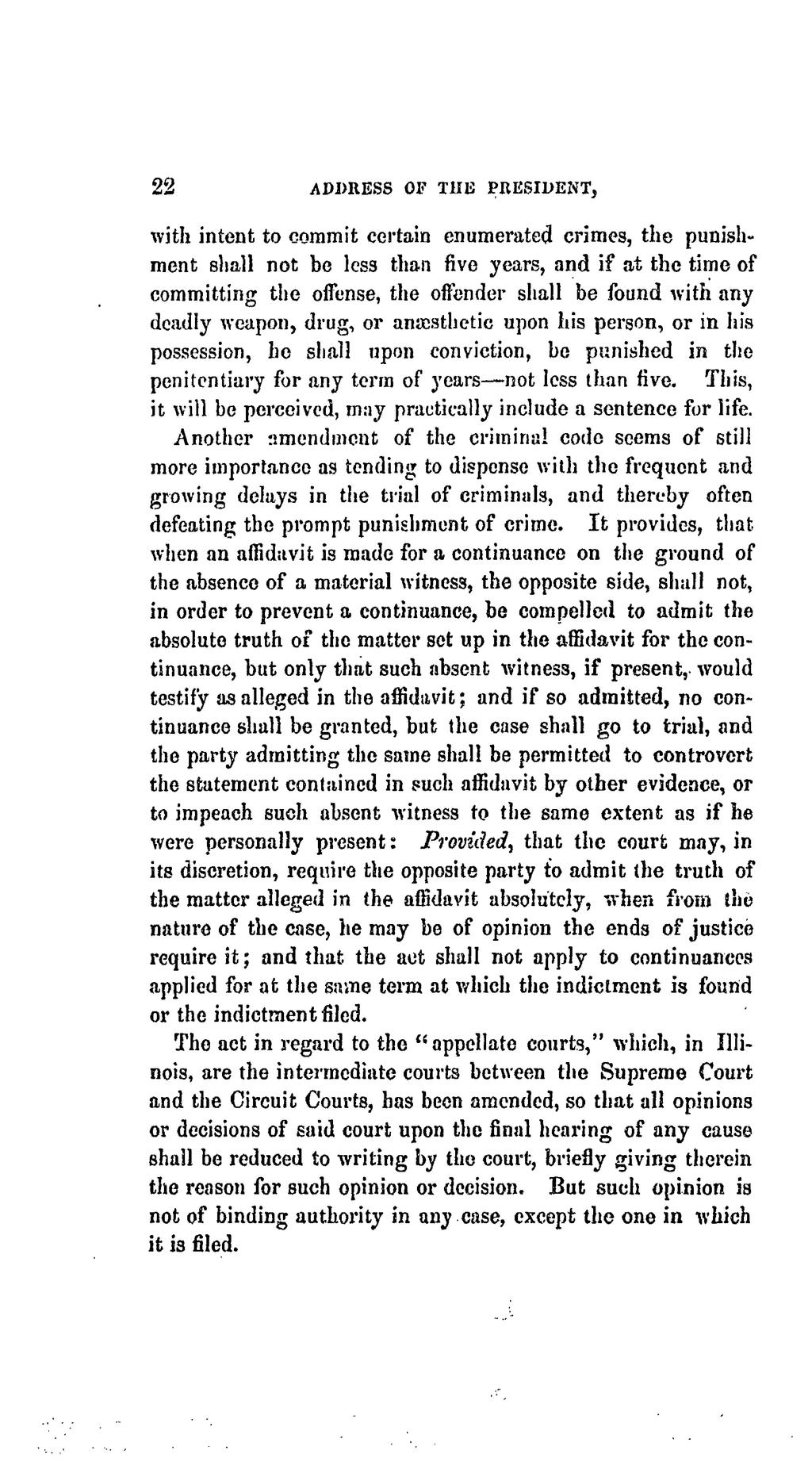with intent to commit certain enumerated crimes, the punishment shall not be less than five years, and if at the time of committing the offense, the offender shall be found with any deadly weapon, drug, or anæsthetic upon his person, or in his possession, he shall upon conviction, be punished in the penitentiary for any term of years—not less than five. This, it will be perceived, may practically include a sentence for life.
Another amendment of the criminal code seems of still more importance as tending to dispense with the frequent and growing delays in the trial of criminals, and thereby often defeating the prompt punishment of crime. It provides, that when an affidavit is made for a continuance on the ground of the absence of a material witness, the opposite side, shall not, in order to prevent it continuance, be compelled to admit the absolute truth of the matter set up in the affidavit for the continuance, but only that such absent witness, if present, would testify as alleged in the affidavit; and if so admitted, no continuance shall be granted, but the case shall go to trial, and the party admitting the same shall be permitted to controvert the statement contained in such affidavit by other evidence, or to impeach such absent witness to the same extent as if he were personally present: Provided, that the court may, in its discretion, require the opposite party to admit the truth of the matter alleged in the affidavit absolutely, when from the nature of the case, he may be of opinion the ends of justice require it; and that the act shall not apply to continuances applied for at the same term at which the indictment is found or the indictment filed.
The act in regard to the "appellate courts," which, in Illinois, are the intermediate courts between the Supreme Court and the Circuit Courts, has been amended, so that all opinions or decisions of said court upon the final hearing of any cause shall be reduced to writing by the court, briefly giving therein the reason for such opinion or decision. But such opinion is not of binding authority in any case, except the one in which it is filed.
